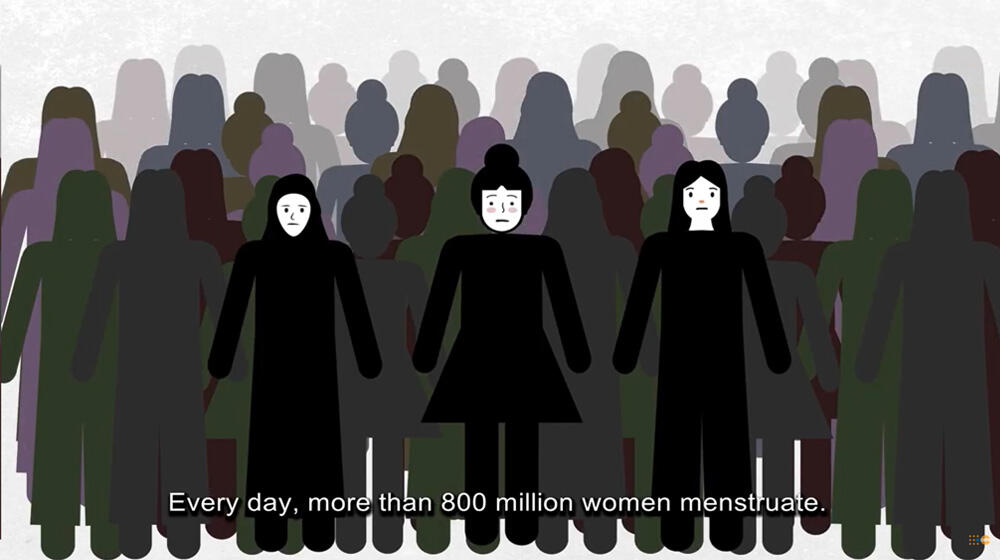More than 800 million women get their period every year. Menstruation is a healthy process and access to menstrual hygiene products is a basic human right. On the other hand, millions of women and girls around the world do not have access to accurate and reliable information about menstruation, cannot access the hygienic products they need during their menstrual period, and cannot experience this natural process in a healthy and safe manner. It is especially prevalent among vulnerable groups who struggle with period poverty throughout their lives. According to the new report of the United Nations Population Fund, UNFPA Türkiye, one in two refugee women and girls living in Türkiye access menstrual hygienic products because they are “too expensive”.
ANKARA, TÜRKİYE - Every day, more than 800 million women get their period. A woman menstruates for an average of 7 years of her life. Menstruation is a natural and healthy process and access to menstrual hygiene products is a basic human right. On the other hand, millions of women and girls around the world do not have access to accurate and reliable information about menstruation, cannot reach the hygienic products they need during their menstrual period, and cannot pass this natural process in a healthy and safe way. Especially refugees, migrants and other vulnerable groups struggle with period poverty throughout their lives. The new report of the United Nations Population Fund, UNFPA Türkiye, draws attention to the difficulties faced by vulnerable groups living in Türkiye with striking data.
Türkiye, as the country hosting the largest number of refugees in the world, hosts nearly 4 million refugees and asylum seekers, including 3.6 million Syrians under temporary protection. A quarter of the refugees are women and girls of reproductive age. UNFPA, published the report of the research "Menstrual Hygiene Management of Refugee Women and Girls in Türkiye" which was carried out to evaluate the knowledge, status and practices of women and girls in refugee groups in Türkiye, the extent of period poverty and the current status of its underlying causes.
According to the report; Menstruation starts at the age of 12-13 on average. However, more than half of the girls in the vulnerable group step into this process without any knowledge. A young Syrian girl from the age group 15-18 who participated in the study said, “I knew nothing about bleeding and menstruation. I was in 5th grade when it started. I said to my mother, ‘Mom, I'm dying.’ ‘Take this cloth and wear it,’ my mother said. But she didn't tell me how to wear it.” A young Iraqi girl in the same age group said, “I was 12 years old. No one had explained it before. I was scared. For a very long time, I couldn't tell anyone."
According to the report, one out of every two women and girls in the vulnerable group cannot access menstrual hygiene products because they are "too expensive" and have to use the following products. Moreover, 1 out of every 5 women washes these products even though it is not hygienic, and reuses them in the next menstrual period.
- Napkins/cloth pieces/towels
- Diapers
- Cotton
- Old fabric scraps
- Underwear only
UNFPA Türkiye's reports put light on the stigmatization issue too. According to the research, 1 in 3 women is worried about being bullied or teased because they have their periods. Women participating in the research also draw attention to the cultural pressures that increase period poverty, saying "I have no choice, whatever my family sees fit", "No reliable/local dealer," and "It is not culturally accepted."
With the report, UNFPA not only raises the general awareness of the stigma experienced by women and girls due to this natural process, and the period poverty that they struggle with due to the lack of access to reliable information and menstrual hygiene products. It also includes recommendations for all stakeholders of the issue, aiming to be a guide by determining the needs and service gaps regarding menstrual hygiene management.
Short Report Video


